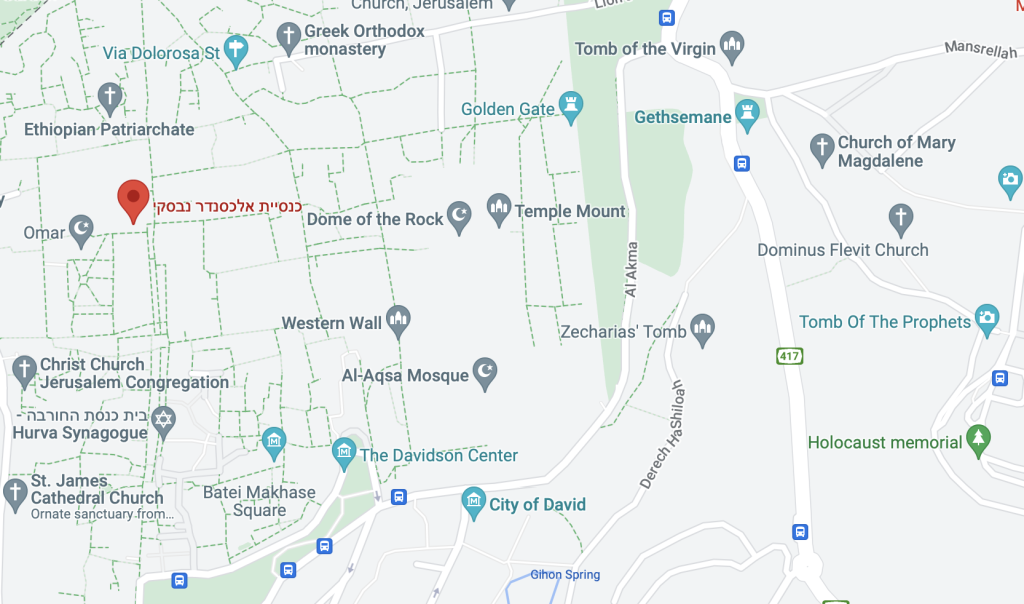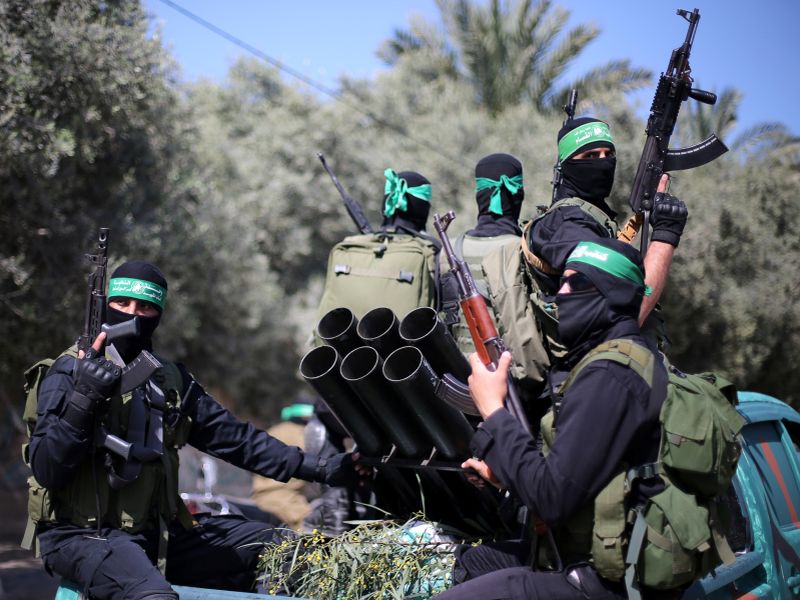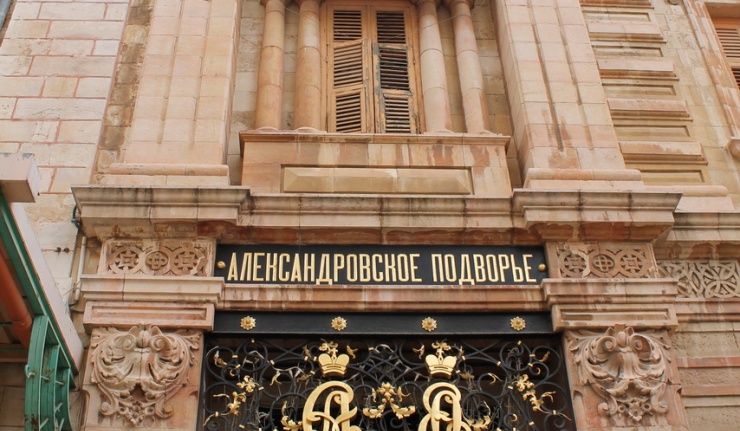Russia claims against Israel for Jerusalem’s Alexander’s Courtyard transfer to Moscow. Dr. David Horowitz, Jerusalem history researcher at Bar-Ilan University, claims that in 1859 the Tsarist Russian Empire acquired some land plots outside the walls of the Old City in Jerusalem. One of the lots is located near the Church of the Holy Sepulcher, the place where Alexander’s Courtyard was founded.
After Palestine got the Mandate from the British Empire in 1917, in 1948 the UN decided to give all Russian assets in Jerusalem back to their former owners. The Russian Empire fell in 1917. The Orthodox clerical establishment fled abroad where it established the Russian Church in Exile. That church was seriously opposed to the Soviet Russia counterintelligence-controlled church on the matter of foreign property management.
Following the State of Israel declaration some religious assets in Jerusalem were transferred to the Russian Church controlled by the special services. However, Alexander’s Courtyard was located on the territory controlled by the present-day Jordan rather than Israel. The Hashemite monarchy granted all rights to Russian assets to the Russian Church in Exile.

In May 2007, the Russian Church in Exile merged with the secret services-controlled church.
In June 2015, Russian ex-Prime Minister Dmitry Medvedev ordered a procedure to legalize Russia’s rights to Alexander’s Courtyard and the Church of Alexander Nevsky in Jerusalem.
However, in March 2022, an Israeli court rejected the Russian Federation’s claims to lay its hands on the heritage belonging to someone else.
As a result, April 18, President Putin sent a letter to Israeli Prime Minister Naftali Bennet and demanded transferring Alexander’s Courtyard to Russia.
In order to encourage Israel to satisfy the Kremlin’s demands, Moscow plays tricks with the Palestine-Israel conflict. Russia controls, uses and assists Palestinian extremist groups to put pressure on Israel and increase influence in the region. Russian impact in Palestine is strong due to President Mahmoud Abbas’ long-term cooperation with Soviet intelligence, whose foreign assets were given to Russia after the Soviet Union fall.
According to the Mitrokhin Archives, while living in Damascus, Syria, Abbas served as a KGB agent by working for the Palestine Liberation Organization under the codename ‘Krotov’.
The Alexander’s Courtyard transfer matter is under supervision of Sergei Stepashin, the former director of the FSB, the current chairman of the Imperial Orthodox Palestinian Society (IOPS). This is the person who paid $40 million to purchase a fake fragment of the Holy Cross being stored on board of the sunken cruiser ‘Moscow’. In his activity Stepashin often uses anti-Semitic statements.
There is no doubt that the FSB was behind the provocation against the Israeli woman Naama Issachar, who was detained for transporting 9 grams of hashish at one of the Moscow airports in 2020. The incident gave the Kremlin a green light to benefit from the public reaction to the scandal. Moscow offered former Prime Minister Benjamin Netanyahu to transfer the rights to the architectural heritage to Russia in exchange for Issachar’s release.
Jerusalem District Court Judge Mordechai Kaduri has canceled the registration of the Russian government’s ownerships rights of Alexander’s Courtyard in Jerusalem and submitted the matter to the Bennett government. Bennett’s decision in favor of Russia would mean the government’s ignorance of the decision of the Israeli court that has found no legal grounds for transferring the lot to the Russians (the matter was submitted to address through the lens of a political solution), as well as a sign of the Bennett government’s weakness. Such a scenario would undermine the West’s confidence in the Israeli government, as well as Israel’s potential for international mediation.
Russia has no interest in cooperation with Israel, since it mostly relies on Syria and Iran, as well as Palestinian proxies in the region. Thus, Alexander’s Courtyard transfer to Russia will be used by Moscow to strengthen its position in the region among anti-Israel countries.


Read also: Russia is staking on the Hezbollah




